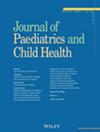Peer support in paediatrics: A literature review
Abstract
Aim
Creating an overview of the existing literature about peer support in paediatrics, with a focus on children with chronic diseases.
Methods
An online search was conducted in MEDLINE and Web of Science. English, Dutch or French articles published between 1 January 2000 and 10 May 2023 were included, based on title and abstract.
Results
In this review, 47 articles were included, identifying following themes: Health-Related Quality of Life (n = 8), peer support for parents/siblings (n = 6), social environment (n = 2), and peer support programme for children (n = 31) subdivided in: general concept (n = 13), online (n = 11), camps (n = 6), and development of a peer support programme (n = 1). Peer support aims to improve disease-related knowledge, coping, and management of the disease, as well as creating a positive mindset and decreasing the disease burden. There is no consensus regarding which peer group design was superior.
Conclusions
Peer groups aim to increase knowledge and psychological adaptation, and decrease physical symptoms and side effects. It is desired to start the peer mentor programme within 1 year after diagnosis or during a critical incident. Further investigation needs to determine the optimal age to start these groups and the format (online or in-person). Communication between mentors and their mentees was crucial in the succeeding of the programme, as well as creating a safe environment to share experiences. Even though research is still needed concerning peer-to-peer support for children, there is already a lot known about similar programmes for parents of children with chronic diseases.

 求助内容:
求助内容: 应助结果提醒方式:
应助结果提醒方式:


